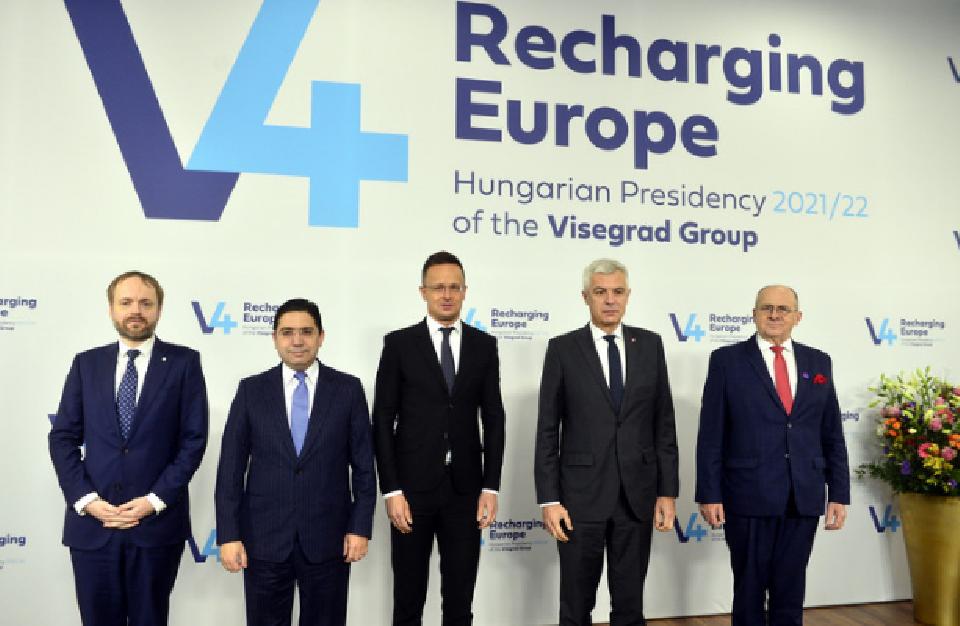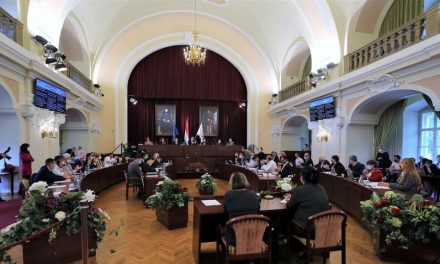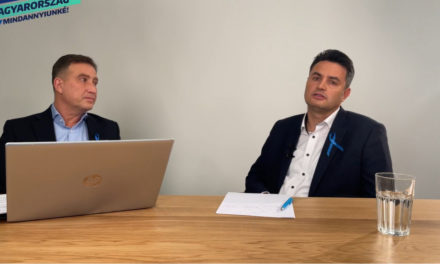Migratory pressure in the Sahel region already poses a serious security risk for the European Union in the short term, which is why the strengthening of the stability of North Africa must be supported, Péter Szijjártó, Minister of Foreign Affairs and Trade, stated on Tuesday at the meeting of the Visegrad Four (V4) and Moroccan foreign ministers.
According to the ministry's statement, at the joint press conference, the Hungarian foreign minister first of all praised the cooperation in Visegrád, within the framework of which it was possible to prevent the introduction of mandatory EU resettlement quotas.
"If we had not shown strength and unity, there would be tens of thousands of illegal migrants here in Central Europe today," he said.
He pointed out that today the continent is under migratory pressure from three directions at the same time in an unprecedented way, and the issue of mechanisms aimed at distributing arrivals and mandatory quotas "is still on the agenda in Brussels, although they are now trying different names".
He emphasized: according to the Central European point of view, aid should be taken to where there is trouble, the root causes should be dealt with, and cooperation with those countries that can contribute to pushing the European defense line as far as possible.
Péter Szijjártó reported that migration pressure from Africa to Europe has "always caused a headache" and will intensify in the coming months as the root causes continue to worsen. Armed conflicts, terrorism, and economic challenges are becoming more and more serious in certain areas of Africa, and the coronavirus epidemic has worsened the situation, he listed.
He pointed out that the vaccination rate in many countries of the neighboring continent is extremely low, which favors the development of new virus variants. This, in addition to the waves of migration, represents a serious health risk for Europe, which is why the importance of stopping illegal immigration on the southern route has grown even more nowadays.
As he said, twelve terrorist organizations are active in the Sahel region, the security situation is getting worse, and according to some surveys, more than 70 percent of the population wants to leave the region.
He explained that the security of Europe now depends more than ever on the North African region, which is considered an important defense line. Its strength depends on the stability of the states in the region, and Morocco is a key country that has already stopped hundreds of thousands of migrants on its territory. The EU should therefore provide all possible support for the protection of the country's borders and the development of its economy, and should stop making statements that can be interpreted as an invitation, he said.
"A strong, stable Morocco capable of stopping the wave of migration and protecting its own borders is a fundamental security interest for Europe," he underlined.
Moroccan Foreign Minister Burita Nászer spoke about the importance of developing cooperation in order to solve common challenges, for example in the field of fighting terrorism, illegal immigration, and organized crime. He emphasized that his country strives to diversify its partnership relations within the EU.
Péter Szijjártó responded to a journalist's question on the subject of the Hungarian government's planned land purchases in Slovakia and emphasized that bilateral relations have never been as good as in the past period. Bratislava made a request to Budapest regarding the fund enabling the purchase of farmland, which the government granted, he said, adding that the better the cooperation, the better for the Hungarians in the highlands.
Photo: MTI/Attila Kovács












